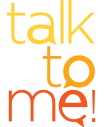Instead of just going out with friends, fifteen-year-old Amina spent most of her spare time taking care of her father.
Javed had been a strong and healthy man who loved outdoor activities.
But one day he noticed his right hand was numb, and he dropped his cup of tea.
Over the next few months, several similar incidents happened to the point he could no longer ignore the strange and alarming symptoms.
After months of exhaustive tests, a neurologist confirmed the terrible news that forty-year-old Javed had an incurable disease called ALS.
The doctors told him that this would result in progressive neurological deterioration of his body.
He was separated from his wife, and his three teenage children lived with him. Amina was his youngest child.
Little by little, Amina started declining invitations from friends.
Doing homework, helping out with the household chores, and helping her dad button his shirts and tie his shoelaces took up most of her spare time.
A decision was taken to get a professional day nurse and attendant.
As professionals, we were expected to teach the family members all aspects of care, but Amina had already learned how to dress her father, assist him in the bathroom, prepare his easy-to-chew food and feed him.
When his speech became slurred, Amina understood him best.
When his lungs became weak and congested, we taught her to use the complicated portable suction machine.
She taught us that she could learn anything needed to care for her father.
I had a lump in my throat watching this fragile girl hoist her father out of his wheelchair and into bed day after day after day.
I wondered where she got her strength.
“From my dad,” she answered.
Finally, the day came when it was impossible for Javed to remain at home.
He was hospitalized. Amina had to be forced to go to school, but as soon as her last class ended, she ran to her father’s bedside.
He went into a coma on the last day of his life, and his devoted daughter told him one last time how much she loved him.
But she did not need to say the words.
Her love and dedication had been proven countless times.
As experienced nurses and attendants, we had taught her the techniques needed to care for her dad.
Yet a fifteen-year-old taught all of us a poignant lesson in love, care-giving and devotion.
A) Vocabulary:
Numb – not able to feel or move
Incident – event or happening
Alarming – something that gives warning of danger
Exhaustive – extremely thorough
Neurological – to do with the nerves of the body
Deterioration – to become worse
Decline – to say ‘no’ to an invitation
Congested – very full
Complicated – difficult to understand
Portable – easy to carry from place to place
Suction – force that draws liquid up into a tube
Hoist – to lift something heavy
Dedication – to devote or give your time to something
Poignant – sad and moving
Please make your own sentences with the words above. Your sentences should show that you understand what the words mean.
B) Discussion: Please answer in complete sentences.
- Have you ever known anyone who has needed this kind of care?
- Have you ever looked after anybody like this? Do you think you could do it?
- What does Amina mean when she says she gets her strength from her father?
- Please discuss the differences in doing any kind of work
willingly or begrudgingly (unwillingly).
C) Branches of Medicine:
Neurology is the branch of medicine concerned with the study and treatment of diseases of the nervous system.
Cardiology is the branch of medicine concerned with the study and treatment of heart diseases.
Dermatology is the branch of medicine concerned with the study and treatment of skin diseases.
What is ophthalmology?
What is oncology?
Please research these on the Internet.
Quote:
You give but little when you give of your possessions.
It is when you give of yourself that you truly give.
Kahlil Gibran
Audio courtesy Tara Kriplani:
